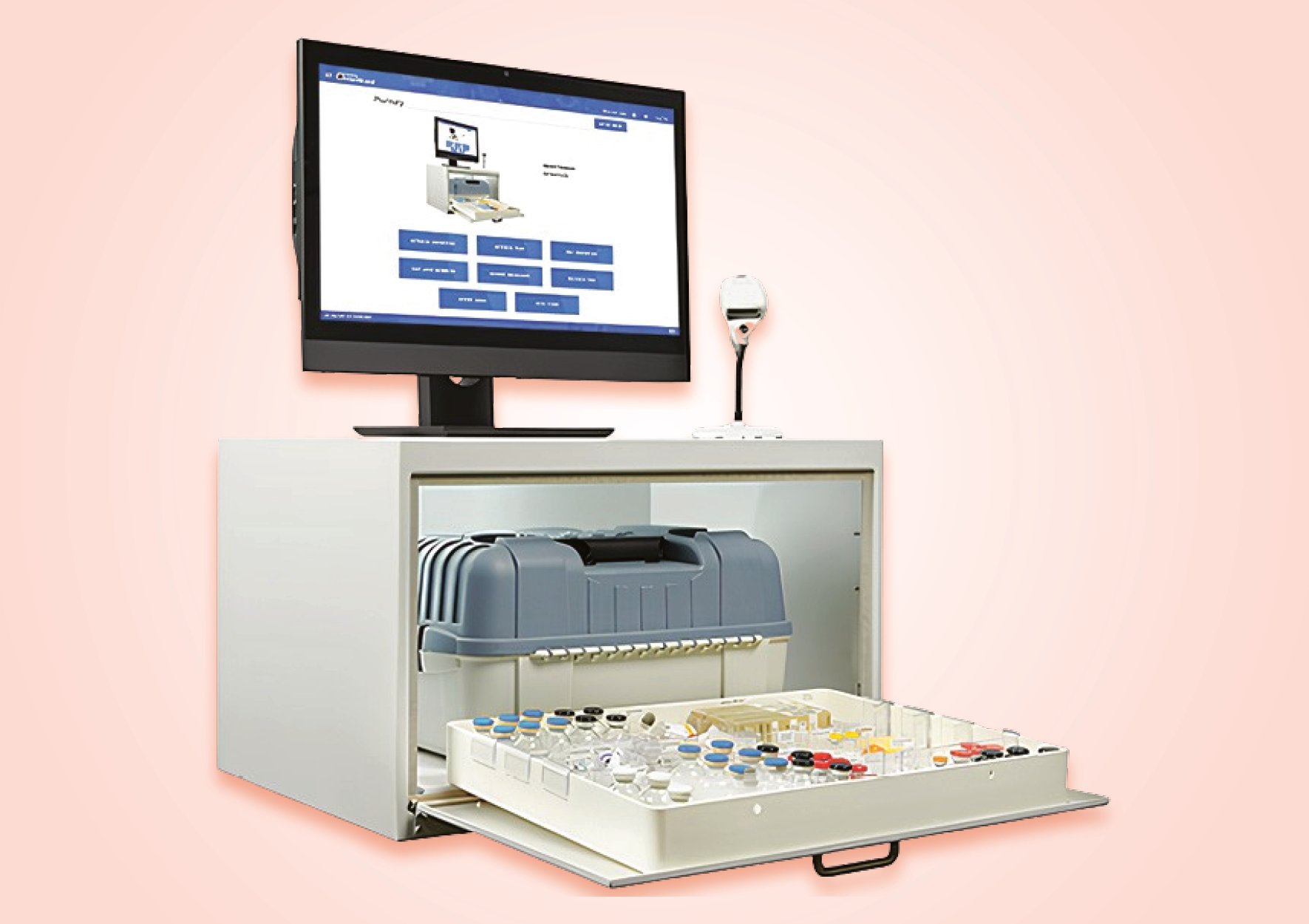- Show Menu
- Contact Us
- FAQs
- Reader Service
- Survey Data
- Survey Winners
- Testimonials
- Upcoming Events
- Webinars
- White Papers
Automating Investigational Drug Service Operations
The Investigational Drug Service (IDS) is an integral part of the research process at many institutions that participate in clinical trials. The concept of the IDS began in the mid-1980s when the FDA first required that pharmacists, rather than researchers, handle the drug-related aspects of clinical trials. While academic health centers were the first to implement investigational drug services, by the late 1990s, several hundred hospitals of varying sizes reported being involved in the dispensing of drugs used for clinical research, providing at least the basic services of dispensing and inventory control.
Responsibilities of Pharmacists Dispensing Research Drugs
While the investigator is ultimately responsible for all aspects of a study, including the investigational drugs, this is an area that is usually delegated to pharmacy. The responsibilities of pharmacists managing and dispensing investigational drugs are based on Good Clinical Practice (GCP) guidelines as described in the Code of Federal Regulations, Title 21. GCP is an international standard for the design, conduct, recording, and reporting of studies that involve human subjects. Compliance with these standards assures the public that study subjects are protected and that the data resulting from clinical trials are credible.
GCP guidelines require strict maintenance and control of investigational agents used in clinical trials. Proper control insures that investigational drugs will be administered only to subjects under the investigator’s supervision. Subjects must sign an informed consent to participate in the study and must agree to remain under the direct care of the investigator. Only then can they receive investigational drugs.
These guidelines also mandate appropriate documentation and record maintenance. Pharmacists are required to maintain records that document the receipt of the drug, when it is dispensed to patients, and final disposition of the drug when the study is closed. Unused drugs must be returned to the sponsor or destroyed at the site of the study. In either case, records of the final disposition must be retained in the study file.
Inventory control and management is a central aspect of the IDS operation. The FDA requires complete accountability of all investigational drugs supplied for a clinical trial. This involves keeping a drug accountability log. The log accounts for every unit of drug provided for the study, from the beginning of the study to its conclusion. After patients are enrolled in the study and drugs are dispensed, the doses given are recorded on the accountability log. When the study closes, return or destruction is also recorded.
Improving the Research Drug Accountability Process
Traditionally, drug accountability has been a manual process with pharmacists using an Investigational Drug Accountability Record (IDAR) to document drug dispensing, receipt, and drug return. IDS pharmacists may use the sponsor’s IDAR, though now many have created institution-specific IDARs. However, these paper logs pose several problems. The process of manually signing drugs out is not only slow and inefficient, but is also error prone. In addition, many sponsors require IDS personnel to complete accountability logs designed specifically for their studies. This leads to further inefficiency as IDS personnel then must complete multiple forms, all in various formats, for different studies.
To address these challenges, many IDS pharmacists are looking to automate their processes, either by developing an in-house system or by purchasing a protocol management system. At Emory University, we decided to computerize our operation in 2007 and purchased WebIDS, a protocol management program that automates many IDS functions and helps to improve accuracy, safety, and efficiency. The choice to purchase a system, rather than develop one in-house, was simple as we realized developing an in-house system as sophisticated as WebIDS was impossible.
Automating IDS to Manage Increasing Protocols The IDS at Emory University began in the early 1980s with a few protocols for hematology/ oncology. It was a voluntary service available to investigators who elected to use it. Over the years, the number of protocols and the scope of our service grew significantly. By 2007, we were managing about 150 protocols for both medical and surgical services at Emory.
In 2008, the university established a mandate requiring investigators involved in drug studies to use the IDS to manage and dispense study drugs. Included under this mandate are all studies involving drugs provided free of charge to study subjects, whether investigational or marketed drugs. The mandate was driven by FDA requirements, The Joint Commission (TJC) standards, Georgia law, and standards of the Association for the Accreditation of Human Research Protection Programs (AAHRPP). The FDA has specific requirements for investigators and sites regarding the management of drugs, including drug accountability and standards for dose preparation. TJC specifically requires oversight of investigational drugs by pharmacy, and further requires that investigational drugs dispensed to inpatients be done so by the IDS. Georgia’s laws allow physicians to dispense drugs, but require the physician to be present, so tasks cannot be delegated solely to a research nurse. Finally, AAHRPP, the body that accredits institutional review boards, requires that oversight for investigational drug management be handled by the institution’s IDS. As part of Emory’s accreditation by AAHRPP, investigators are required use IDS to handle investigational drugs.
The ultimate goal of our IDS is to insure that investigational agents are handled safely, effectively, and efficiently in the hospital and clinical environment. In addition, IDS makes sure that hospitals and clinics are in compliance with TJC requirements, and the requirements of other governing agencies, such as the FDA and AAHRPP, for investigational drugs in the institutional setting.
The university anticipated that after the IDS mandate was put in place that IDS-managed protocols would increase from 150 to 200-300 protocols. At that point, our staff included two pharmacists and one technician. Clearly, we could not almost double our protocols and manage the process at the same staffing levels. We evaluated the WebIDS program and determined that we could manage the growth by implementing an automated system. Since the mandate, we have added one pharmacist and currently manage 250 protocols.
The automated IDS system offers complete protocol management; it maintains protocol and drug information, patient profiles, randomization assignments, inventory records, and dispensing and patient return information. The system is fully HIPAA and 21 CRF11 compliant and its drug accountability and tracking is far superior to manual logs. Key safety features include patient management functions that prevent dispensing to patients who are not enrolled in a specific study, product selection that is limited to drugs used for the current protocol, and automated checks to identify expired drug inventory. In terms of efficiency, with the automated system, we can record dispensing and inventory used, generate charges, print labels, and track workload in a single process. In addition, billing is automated and invoices are generated on a monthly basis.
Automating our IDS operation was the essential component that supported our growth. Just as the number of protocols we manage has grown significantly in recent years, we also have seen an increase in the complexity of the studies we manage. With the automated approach, not only are our drug accountability and tracking processes superior to manual logs, but we also have seen improved efficiencies across the department. For example, our billing rate has improved as the system generates automatic monthly invoices. Finally, since the paperwork and documentation are automated, our IDS pharmacists are now able to focus more on the research, the patients, and working with investigators.
Susan Rogers, RPh, received her bachelor of science in pharmacy from the University of North Carolina. Susan completed a residency in drug information at The New York Hospital, and began her career in 1980 as the drug information pharmacist for Emory University Hospital in Atlanta, Georgia. During the mid 1980s, she initiated the Investigational Drug Service, which has grown from initially overseeing a few hematology/oncology protocols to currently managing 250 protocols for all Emory University investigators.
Like what you've read? Please log in or create a free account to enjoy more of what www.pppmag.com has to offer.








